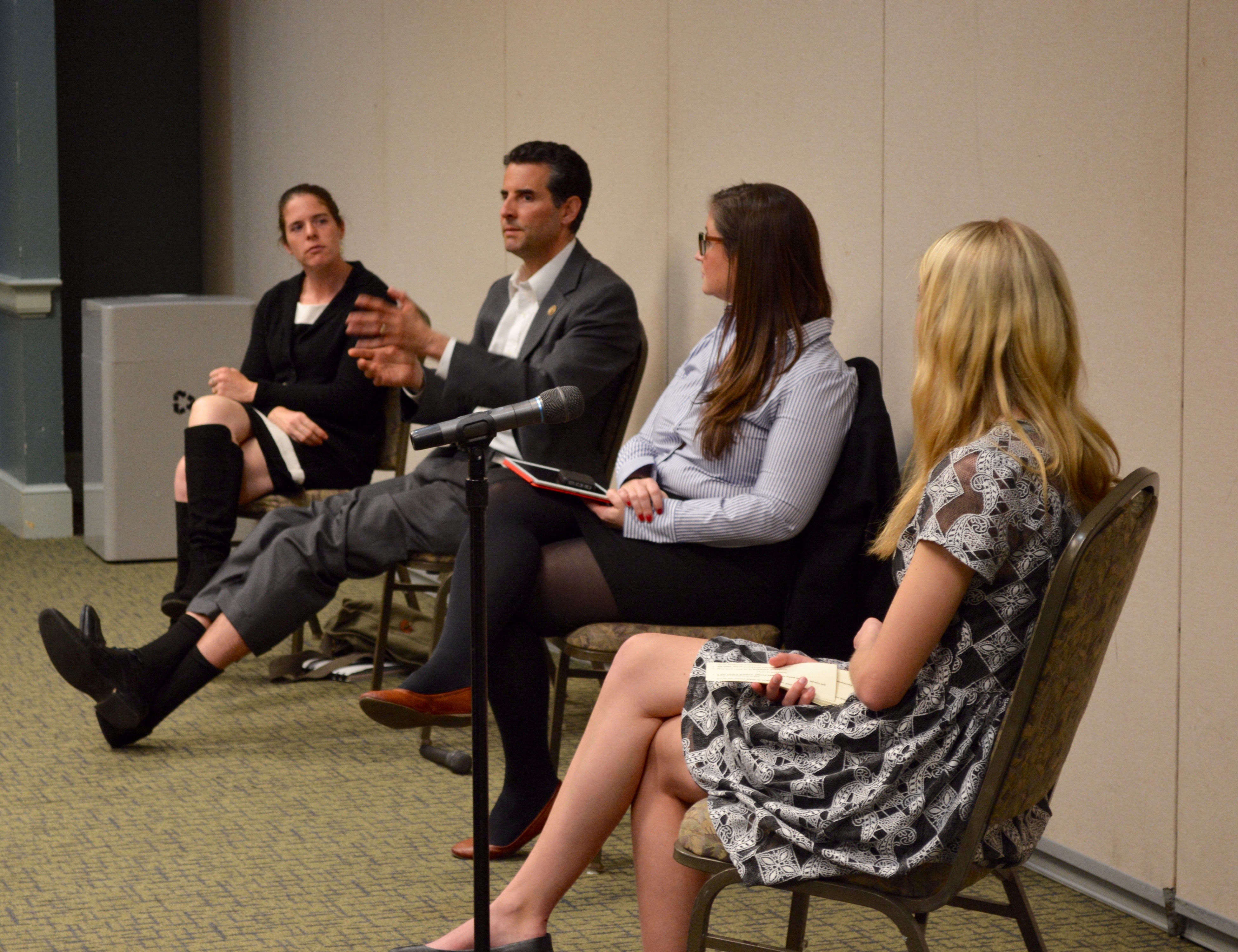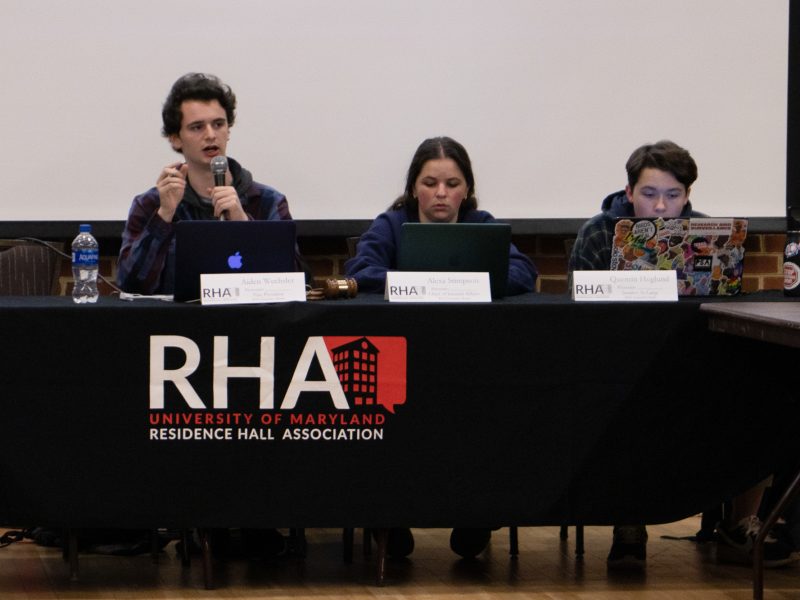Congressman John Sarbanes (D-3rd District) outlined his plan to create a way for citizens, rather than money, to “power the campaigns and policy” during a panel co-hosted by MaryPIRG and Maryland Discourse Wednesday.
The three panelists — Sarbanes, Maryland PIRG Executive Director Emily Scarr and Common Cause Maryland Executive Director Jennifer Bevan-Dange — spoke to about 60 University of Maryland students at Stamp Student Union about the influence of big money in politics.
“Big money is distorting the way the system operates,” Sarbanes said. “People who go to Congress want to do the right thing, but the pressure to raise this money is so intense that it pulls you away from this.”
Sarbanes told students how he hopes to change the way money is handled in campaigns. He said he wants to implement a $25 refundable tax credit to help small donors get into the game and create a six-to-one federal match to donations of up to $150 from a newly created public fund, meaning that a person’s $50 donation would become $350, he said.
Sarbanes said he realized campaign funding was an issue after he was first elected in 2006.
“Even before I was sworn in, my staff was approached by a representative from a very large industry employer in my district, and what this turned out to be was a PAC fundraiser,” Sarbanes said. “I called an emergency meeting of my team, and I said I don’t want to do this, because I felt like an animal being led into a trap.”
Bevan-Dange told students that when she was involved in land-use work land developers would fund local governments, meaning they had the influence.
“The more we engaged in local campaigns, the more it felt like we were hitting our heads on a brick wall,” she said. “Laws were passed at the state level, but nothing was changing on the ground in the counties.”
For decades, people with more money have had more say in politics, Scarr said, which she said needs to change.
“Everyone, regardless of race, income, et cetera should have more opportunity to take part in the government,” Scarr said.
The two organizations hosted the panel as a way for students and professionals to come together to discuss the 2010 Supreme Court case Citizens United v. FEC, which removed barriers on corporate political spending on elections, according to a news release.
“The court made the case that money is speech,” Sarbanes said. “It then unleashed this new torrent of money coming into politics.”
Sophomore economics and government and politics major Christian Knapp, CEO of Maryland Discourse, said he thought the panel went well.
“The panel was really deep as far as the knowledge they had,” Knapp said. “They covered both federal, state and local levels, and I think that is really key to showing students that money in politics doesn’t just affect presidential races, but also things like zoning and development.”
Andrew Kovar, a sophomore accounting and finance major, said campaign financing is the major political issue he focuses on.
“It’s really important that corporations don’t have a large voice,” Kovar said. “They have enough of a voice just by being a major part of the economy that they are.”
Scarr ended the panel by asking students to take part in the local efforts.
“The thing we need on all of our issues are people,” she said. “We have all of these ideas, but unfortunately no one is participating much in our democracy. The fundamental thing is registering and turning out to vote, because that is one thing corporations can’t do.”



